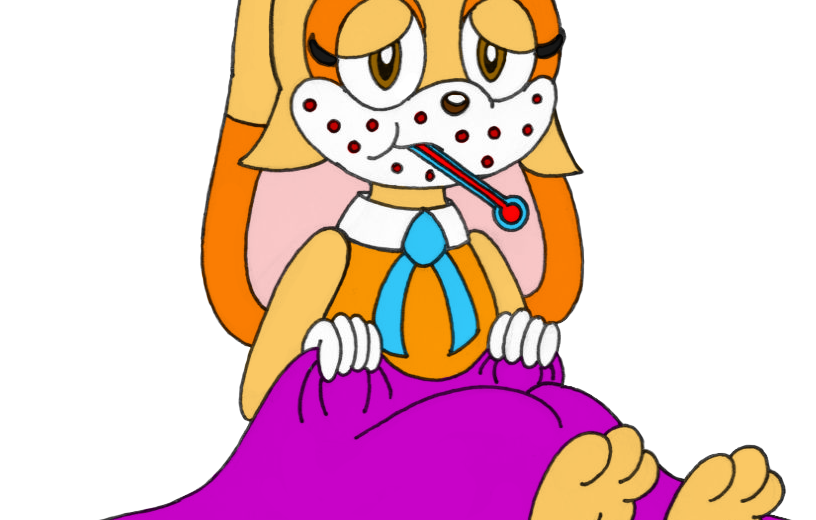Chicken pox FAQ

-What causes chickenpox?
Chickenpox is caused by a virus, the varicella-zoster virus.
-How does chickenpox spread?
Chickenpox spreads from person to person by direct contact or through the air by coughing or sneezing. It is highly contagious. It can also spread through direct contact with the fluid from a blister of a person infected with chickenpox, or from direct contact with a sore from a person with shingles.
-How long does it take to show signs of chickenpox after being exposed?
It takes from 10-21 days to develop symptoms after being exposed to a person infected with chickenpox. The usual time period is 14-16 days.
-What are the symptoms of chickenpox?
The most common symptoms of chickenpox are rash, fever, coughing, fussiness, headache, and loss of appetite. The rash usually develops on the scalp and body, and then spreads to the face, arms, and legs. The rash usually forms 200-500 itchy blisters in several successive crops. The illness lasts about 5-10 days.
-How do I know if my child has chickenpox?
Usually chickenpox can be diagnosed by disease history and appearance alone. Adults who need to know if they’ve had chickenpox in the past can have this determined by a laboratory test.
-How long is a person with chickenpox contagious?
Patients with chickenpox are contagious for 1-2 days before the rash appears and continue to be contagious until all the blisters are crusted over (usually 6-8 days).
-Is there a treatment for chickenpox?
Most cases of chickenpox in otherwise healthy children are treated with bed rest, fluids, and control of fever. Children with chickenpox should NOT receive aspirin because of possible subsequent risk of Reye’s syndrome. Acetaminophen may be given for fever control.
Chickenpox may be treated with an antiviral drug in serious cases, depending on the patient’s age and health, the extent of the infection, and the timing of the treatment.
-Can you get chickenpox more than once?
Most people are immune to chickenpox after having the disease. However, second cases of chickenpox do occur. The frequency of second cases is not known with certainty, but this appears to be an uncommon event.
-If I think my child has been exposed to chickenpox, what should I do?
If the child has had chickenpox or has been vaccinated, nothing needs to be done. It is recommended that a susceptible person (one who has never had chickenpox) receive the chickenpox vaccine as soon as possible after being exposed to the virus. There is evidence that the vaccine may prevent illness or reduce the seriousness of the disease, if given within 3 to 5 days following exposure. Even if the person was not infected with the chickenpox virus from the exposure, receiving the vaccination will prevent future disease.
-Who should get this chicken pox vaccine?
Chickenpox vaccine is recommended for the following:
• All children younger than age 13 years (one dose at 12-15 months and a second dose at age 4-6 years);
• Everyone age 13 years and older who has never had chickenpox (two doses, given 4-8 weeks apart);
Anyone missing a dose at the recommended times should get the shot at their next visit to their doctor or clinic.
How effective is this vaccine?
Ninety-seven percent of children between age 12 months and 12 years develop immunity to the disease after one dose of vaccine. For older children and adults, an average of 78% develop immunity after one dose and 99% develop immunity after the recommended two doses.
Although some vaccinated children (about 2%) will still get chickenpox, they generally will have a much milder form of the disease, with fewer blisters (typically fewer than 50), lower fever, and a more rapid recovery.
The vaccine almost always prevents against severe disease. Getting chickenpox vaccine is much safer than getting chickenpox disease.
-Isn’t it better for a child to get chickenpox naturally?
Some parents purposely seek to get their children infected with varicella virus, even promoting “chickenpox parties” for this purpose. The belief is that it’s better to be infected when young, a time when the infection is ordinarily less severe. Some parents also believe that something “natural” (the disease) is better than something “artificial” (the vaccine), or that immunity derived from the disease will be more permanent than that from the vaccine.
However, when a safe vaccine is available, parents need to weigh the supposed benefits of infection against its potential risks, including severe disease with complications such as infection with flesh-eating bacteria. No one can predict which child will develop a life-threatening case of chickenpox; in fact, most serious cases occur in previously healthy children.
In addition, in a recent study, 7 out of 10 children said given the choice, they’d rather have the shot than have the natural disease.
-Can the vaccine protect you if you’ve already been exposed to chickenpox?
Yes, it is 70-100% effective if given within 72 hours of exposure.
Who should NOT receive the chickenpox vaccine?
Persons with weakened immune systems and those with life-threatening allergies to gelatin or the antibiotic neomycin should not receive this vaccine.
Pregnant women should not receive this vaccine, as the possible effects on fetal development are unknown. However, non-pregnant women of childbearing age who have never had the disease may be immunized against chickenpox to avoid contracting the disease while pregnant.
(By Dr Mohamed Ghandour , Pediatric Department City Clinic )
